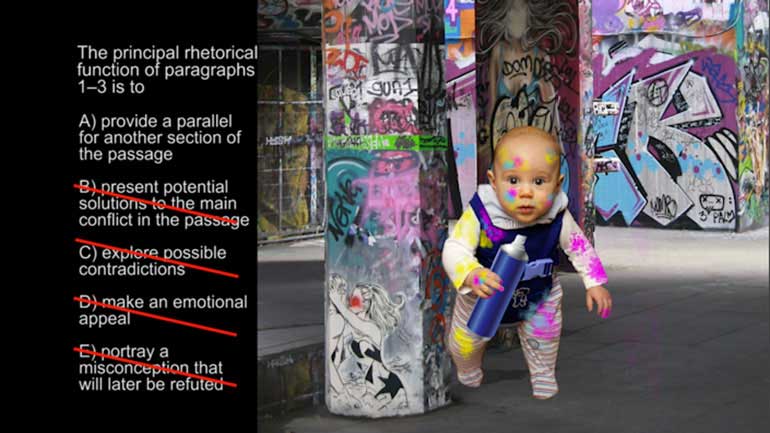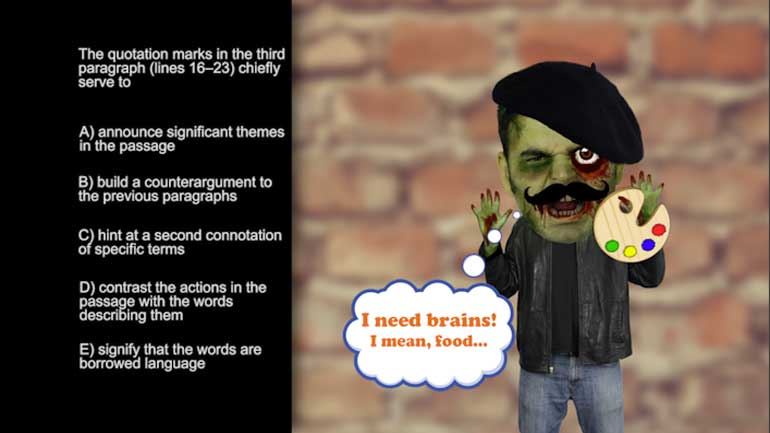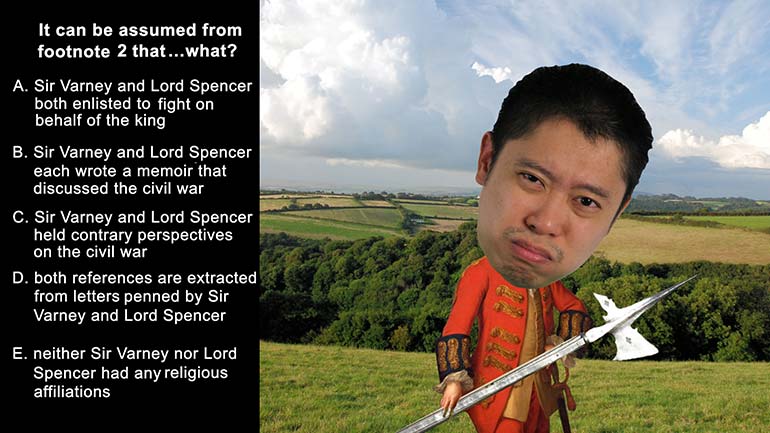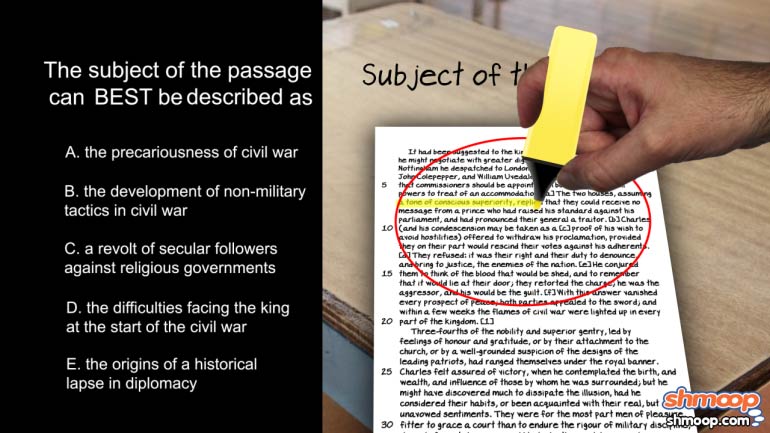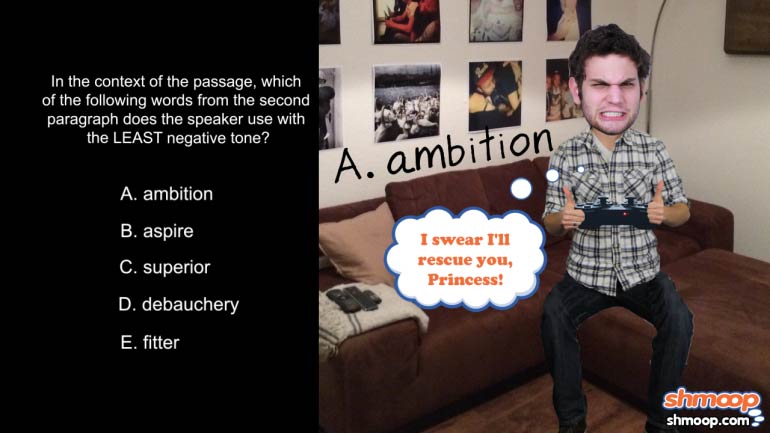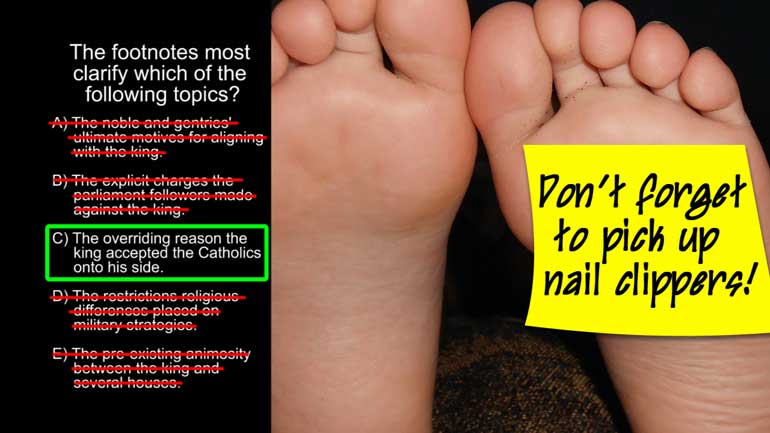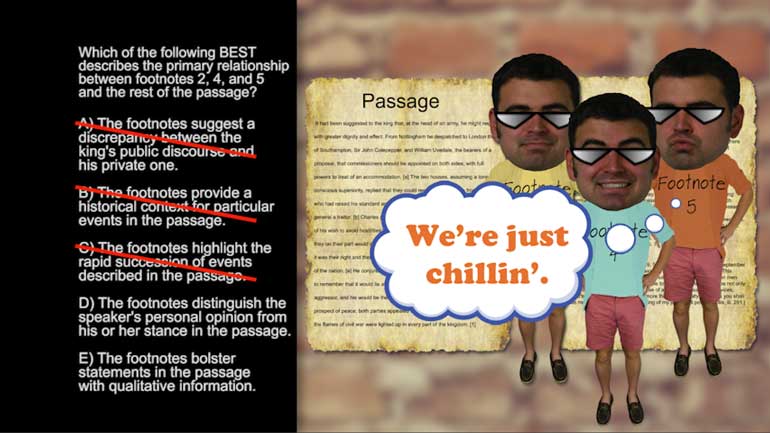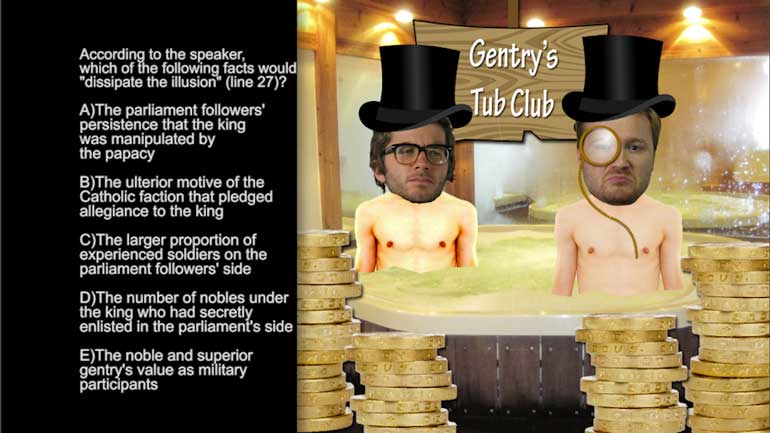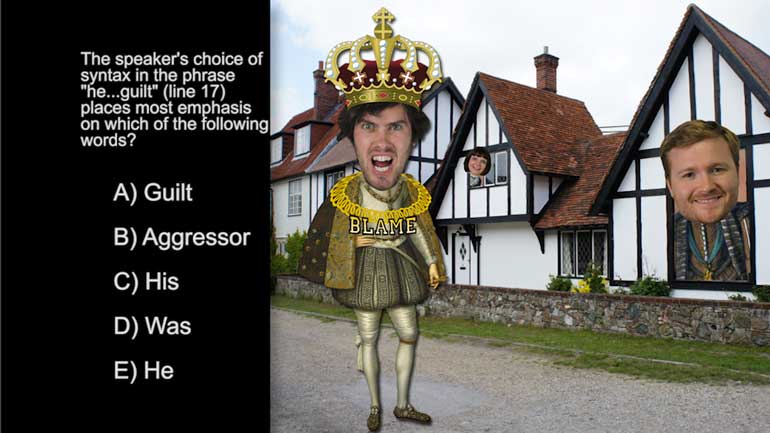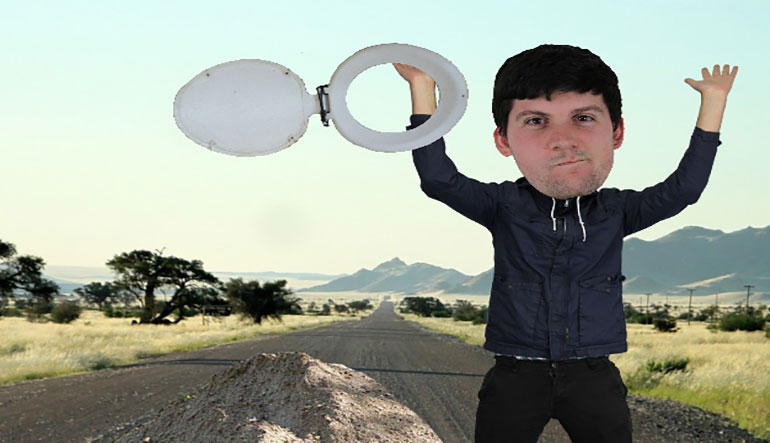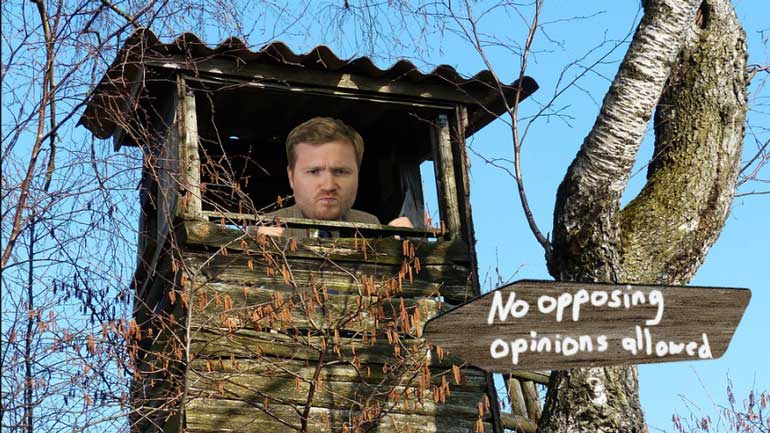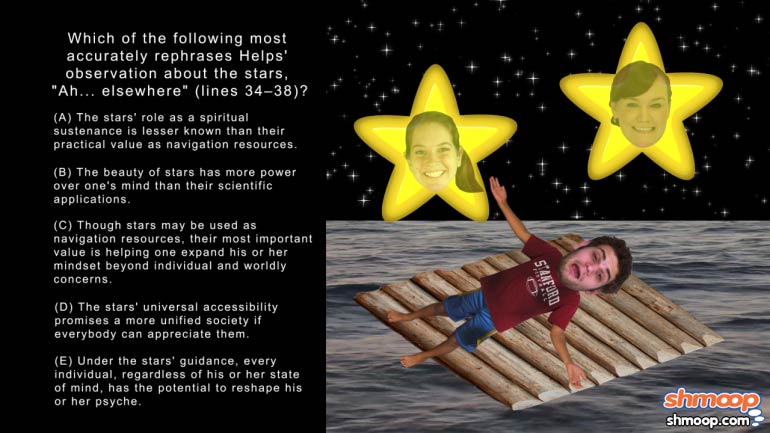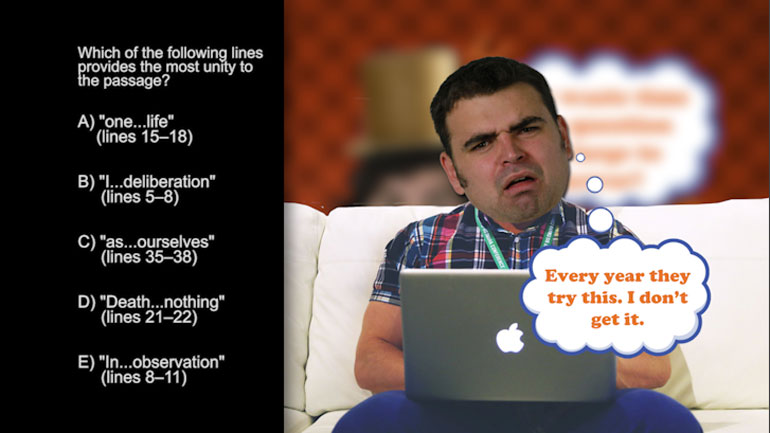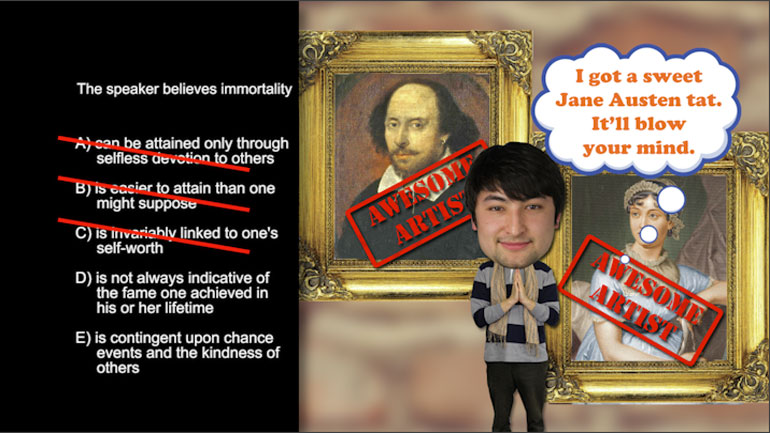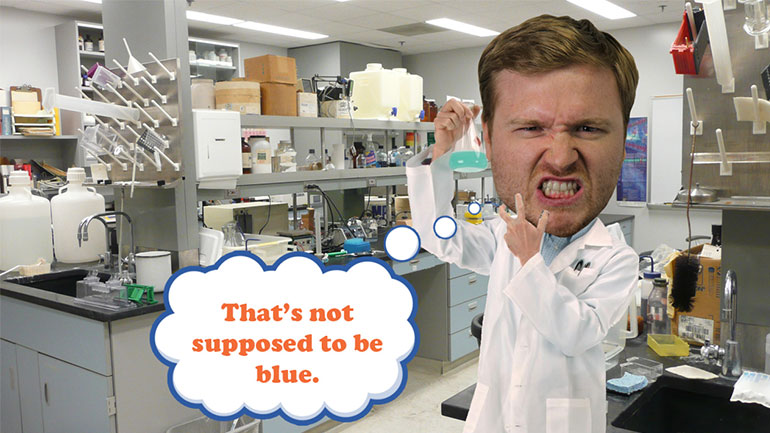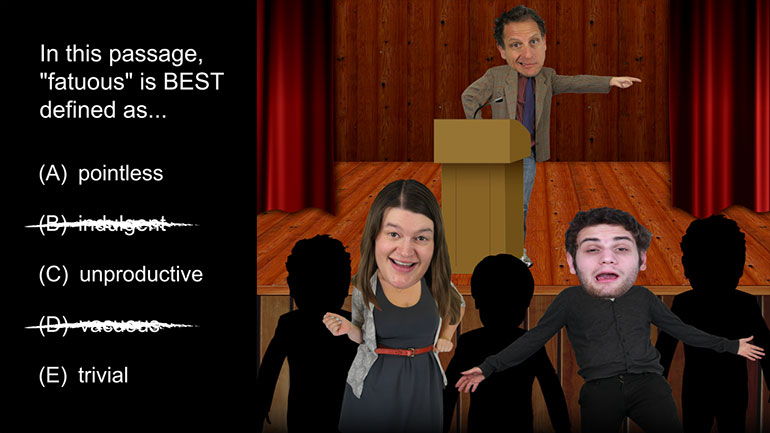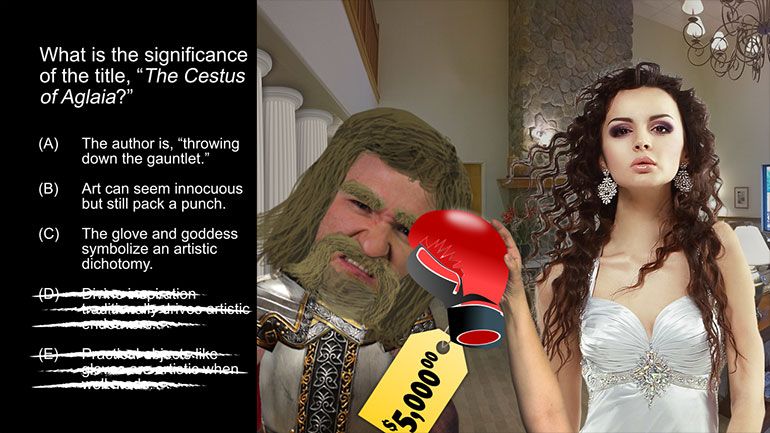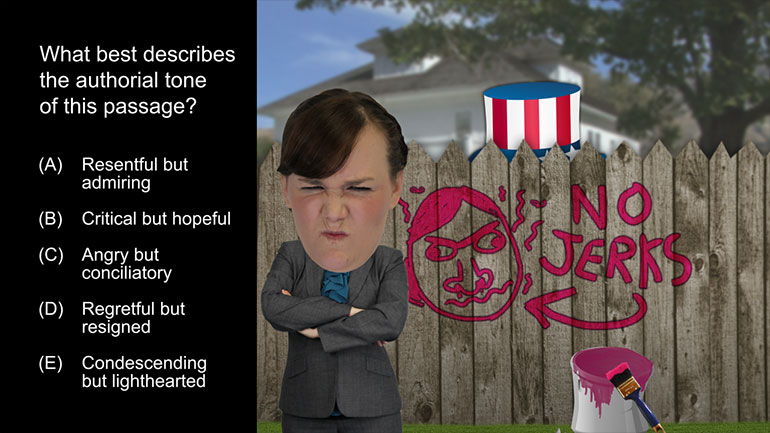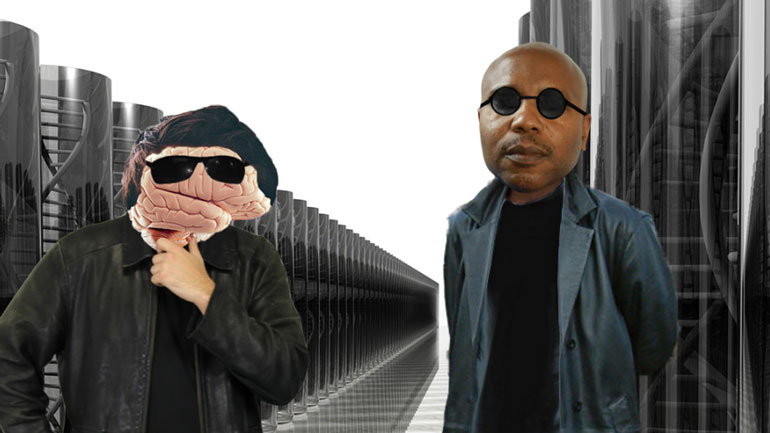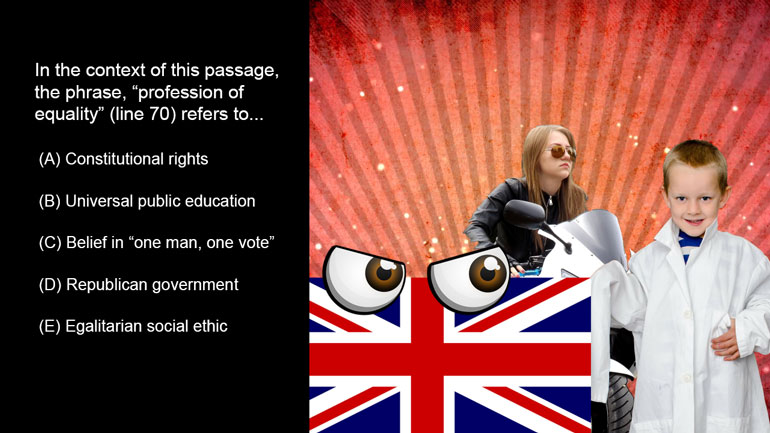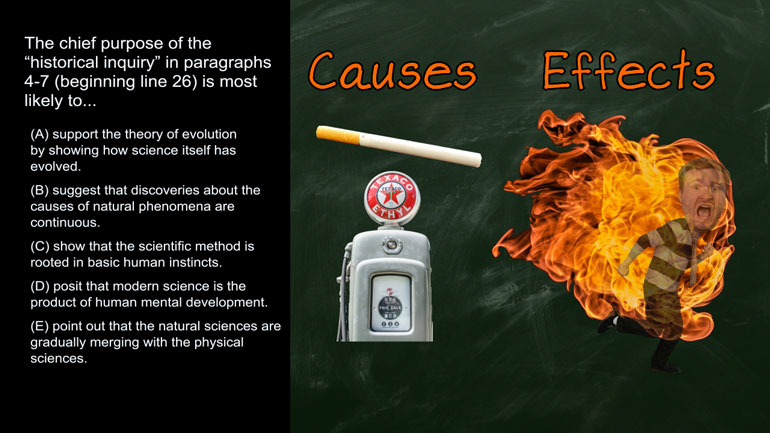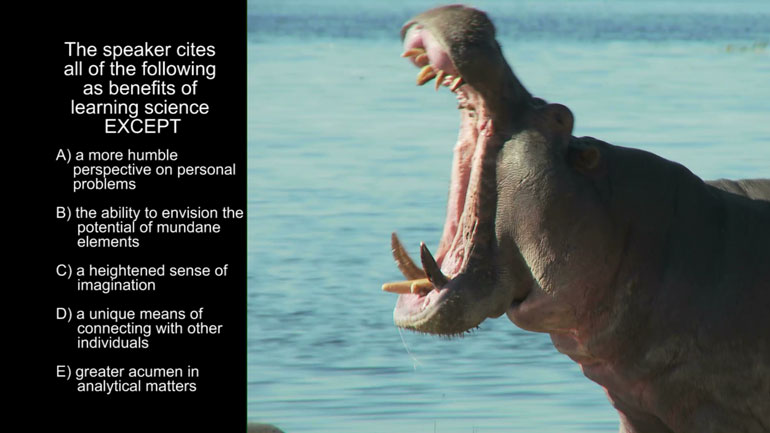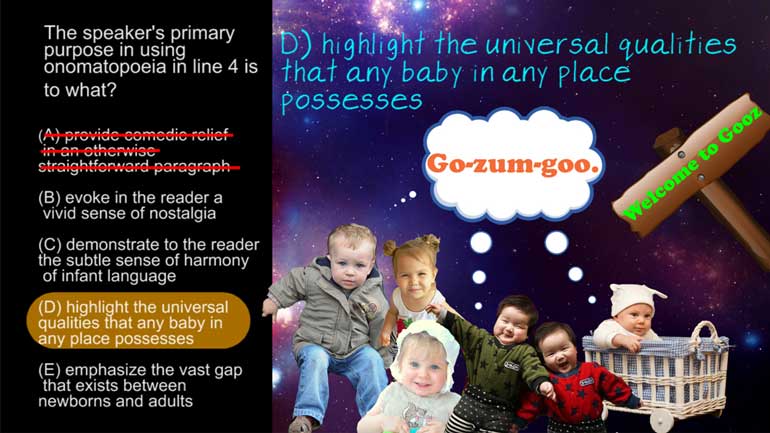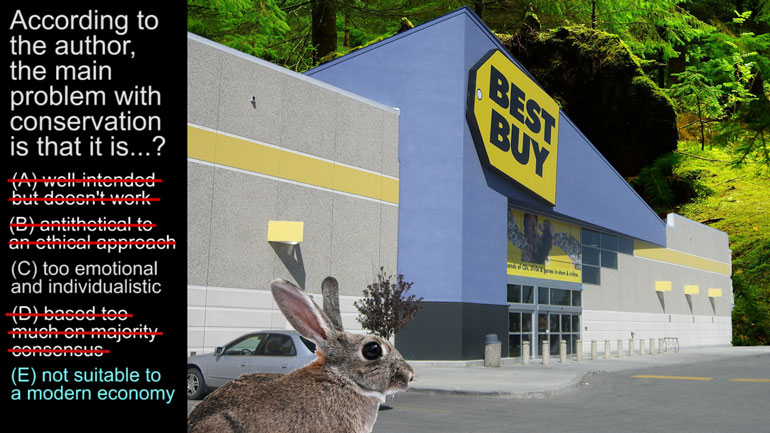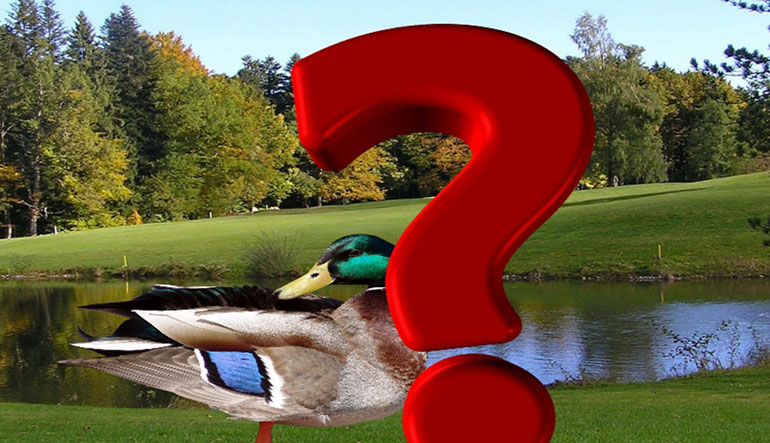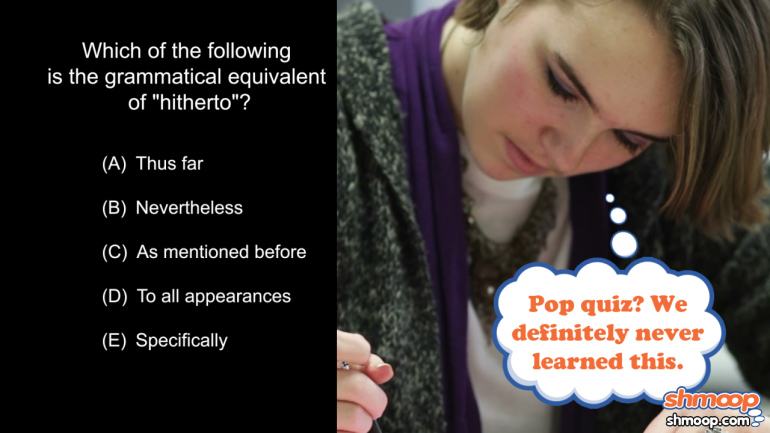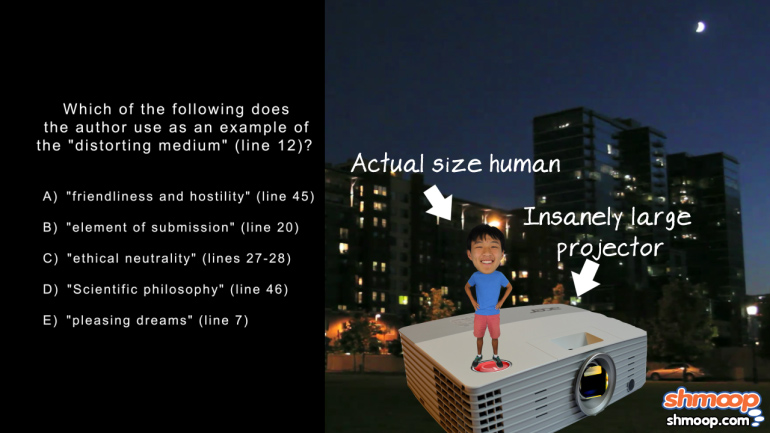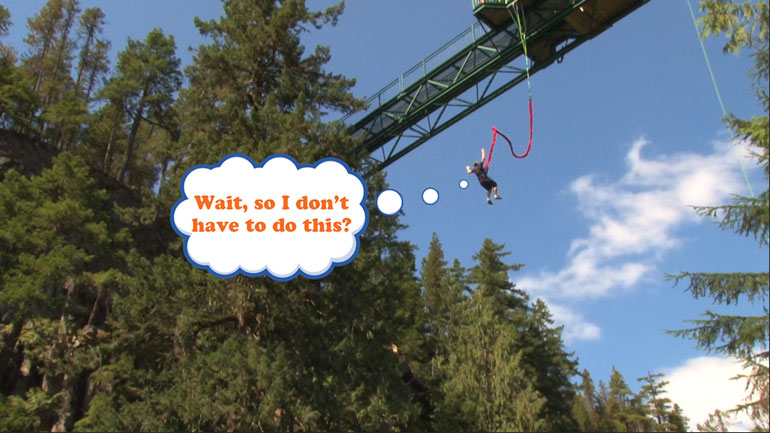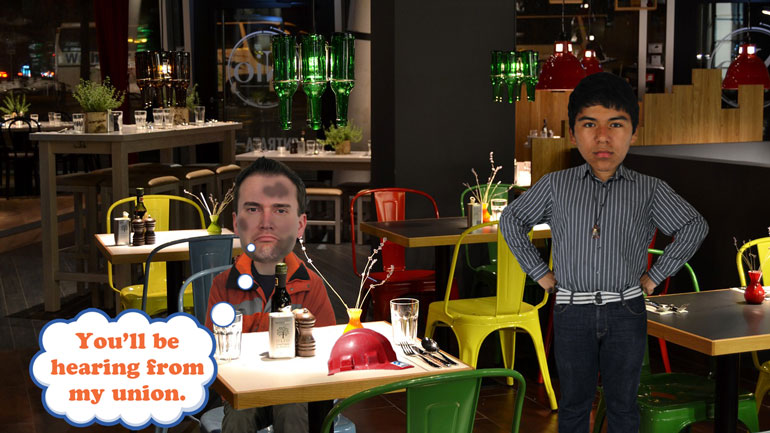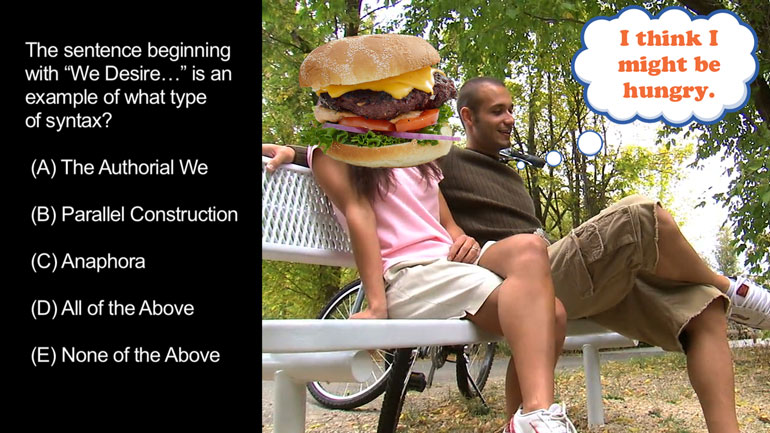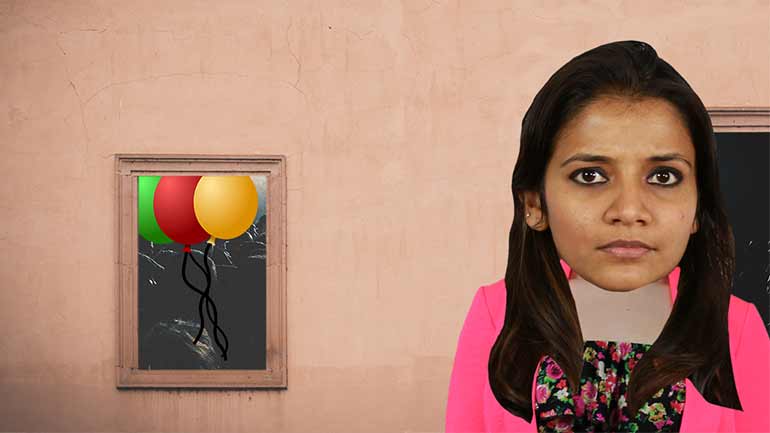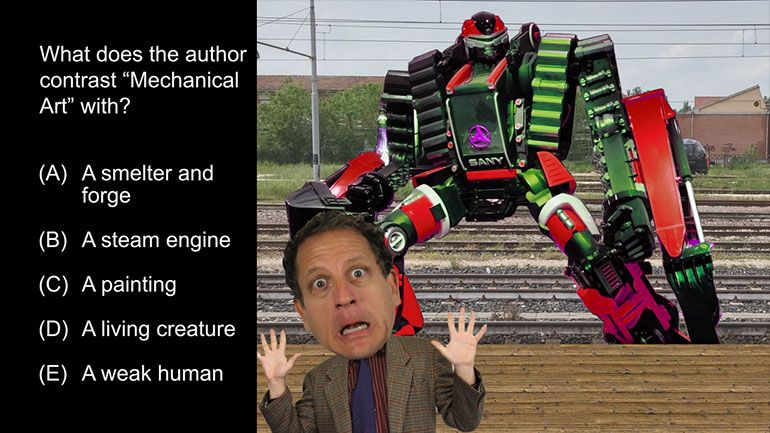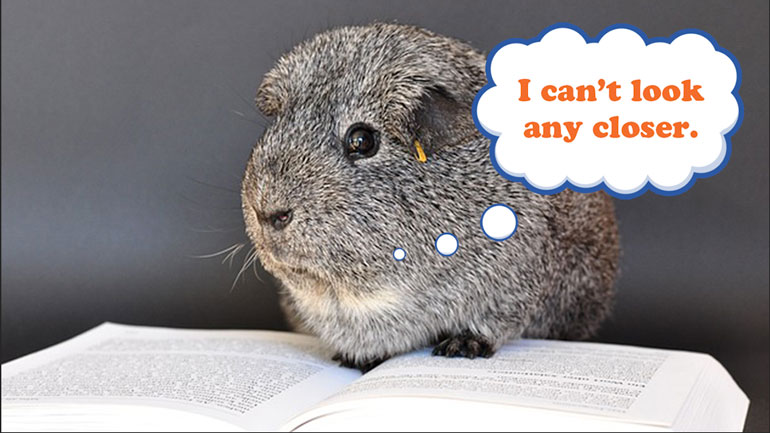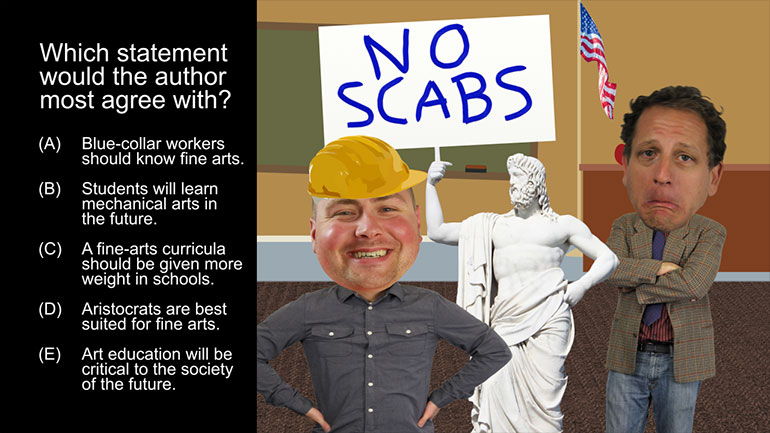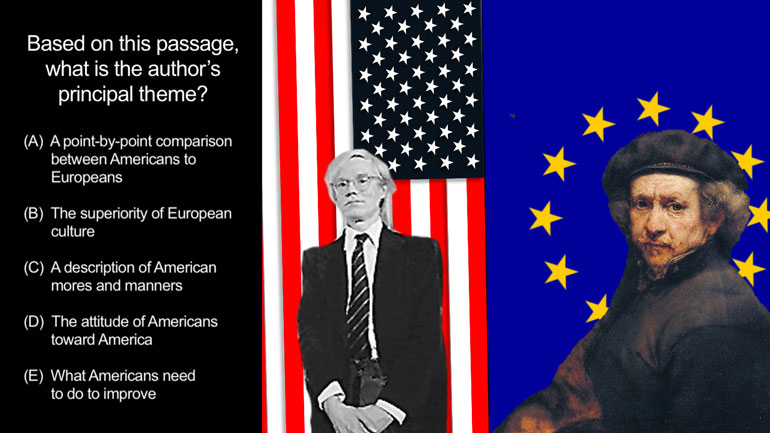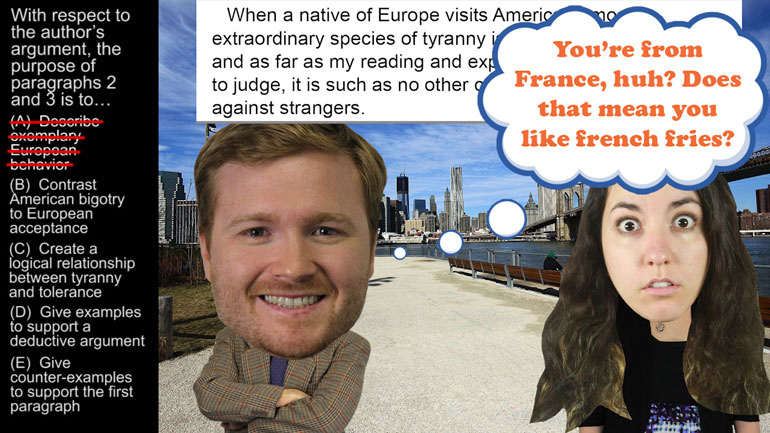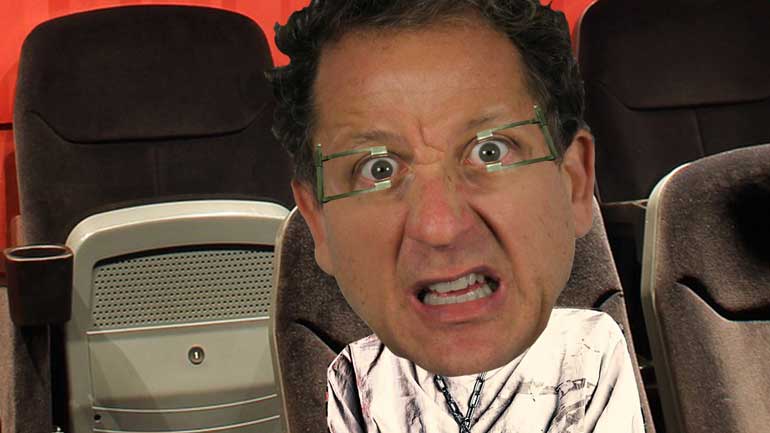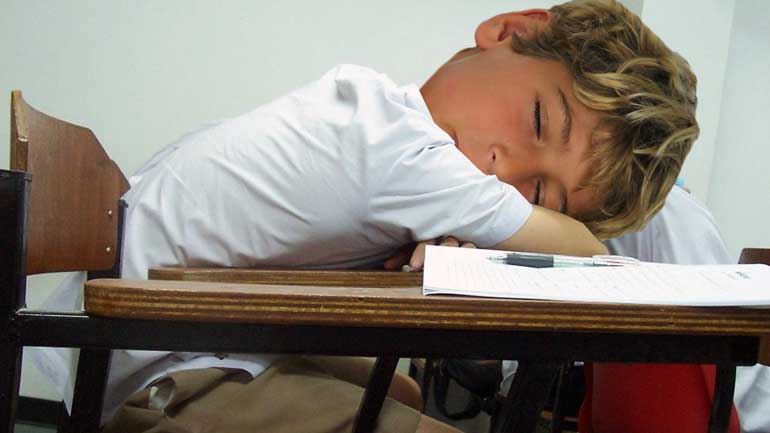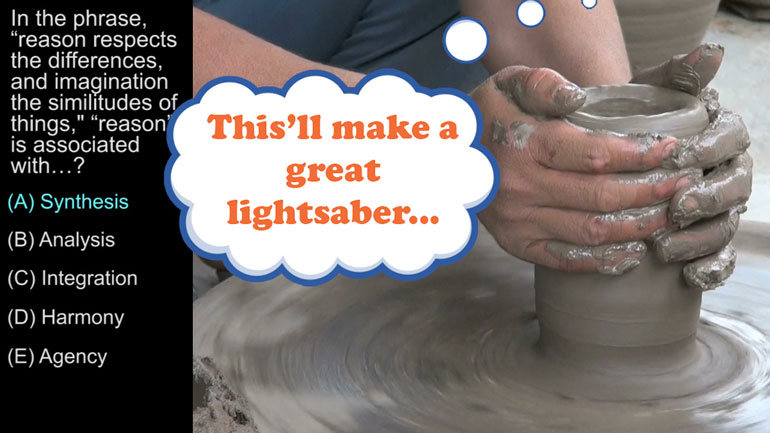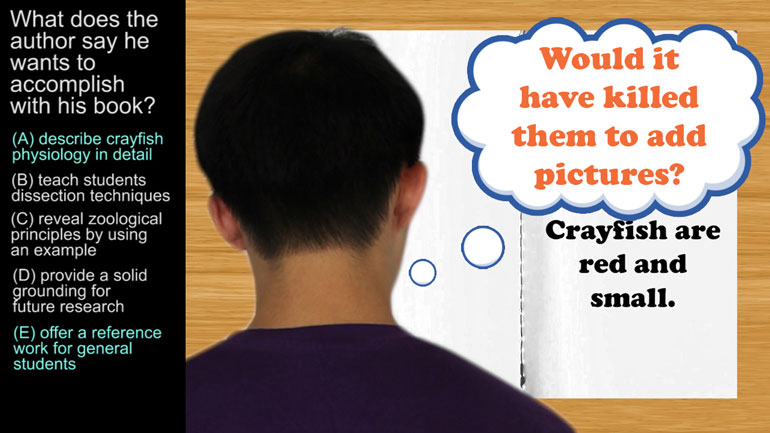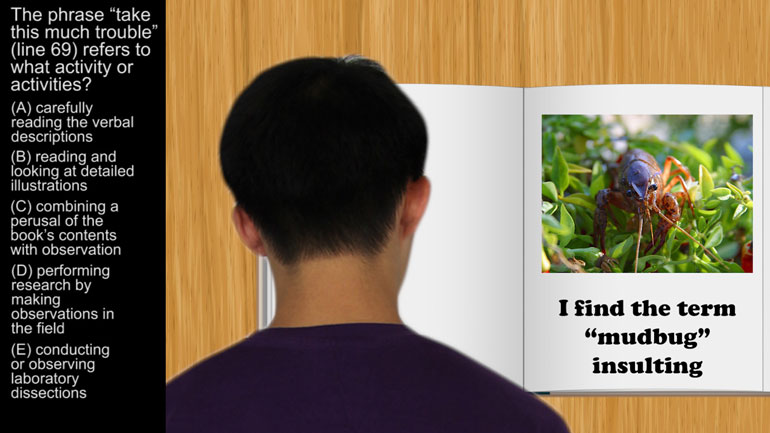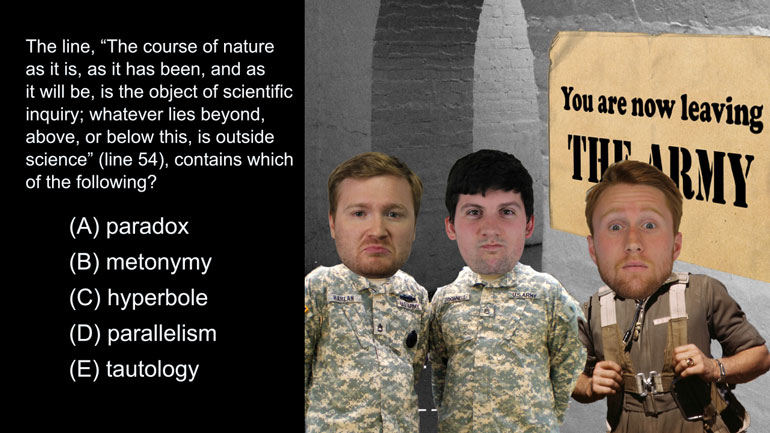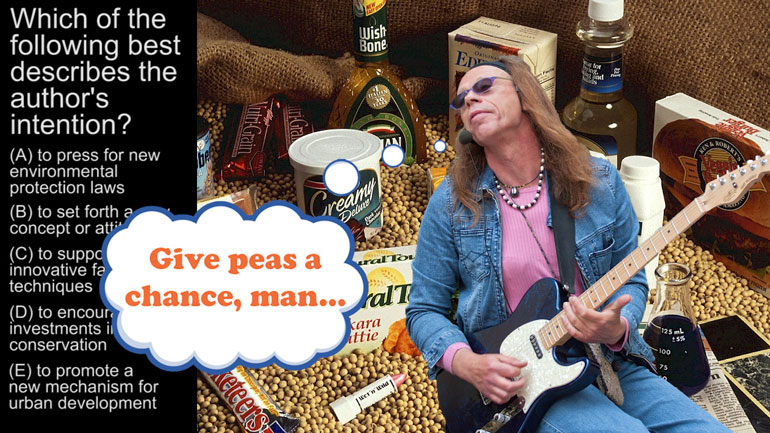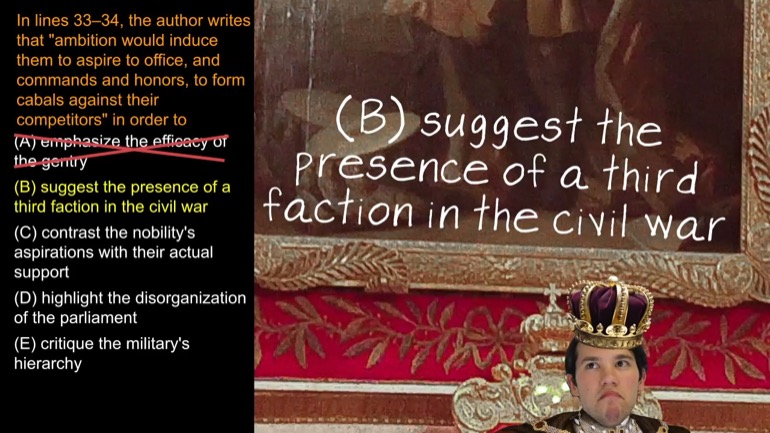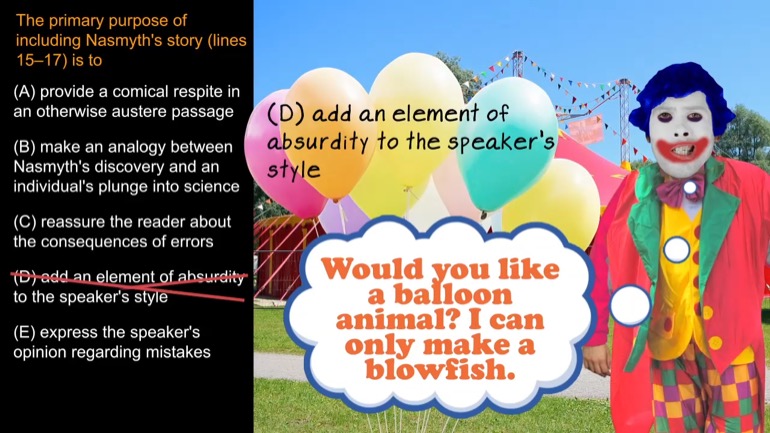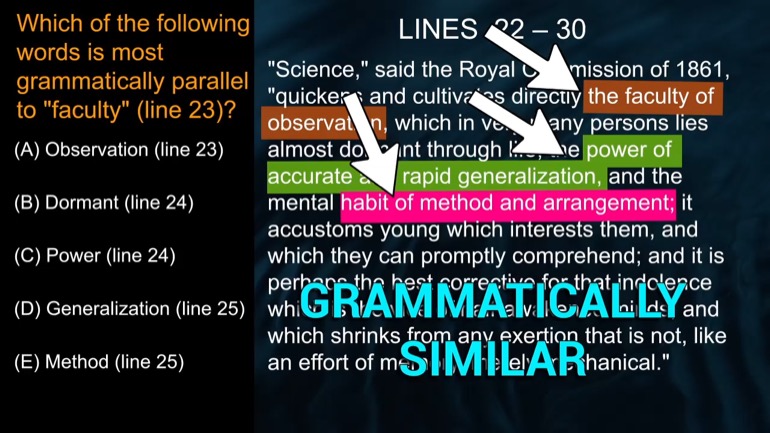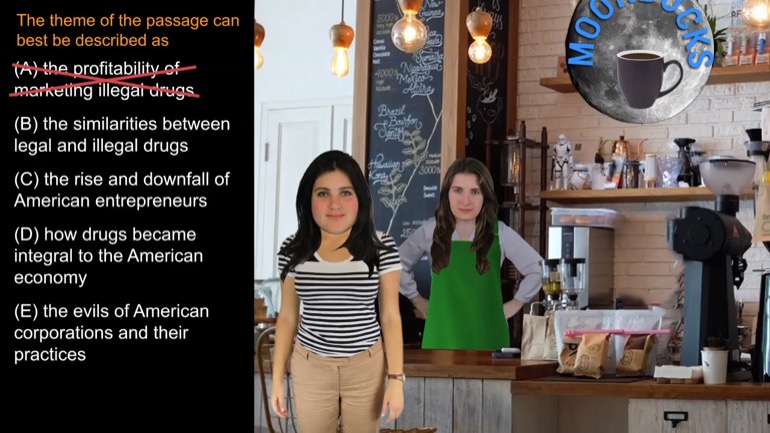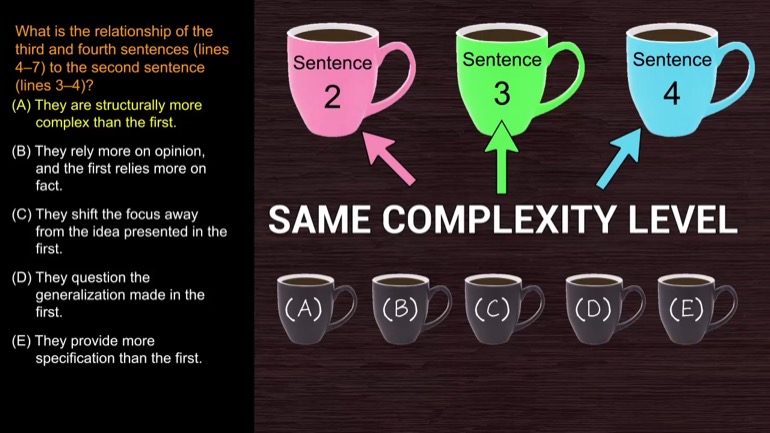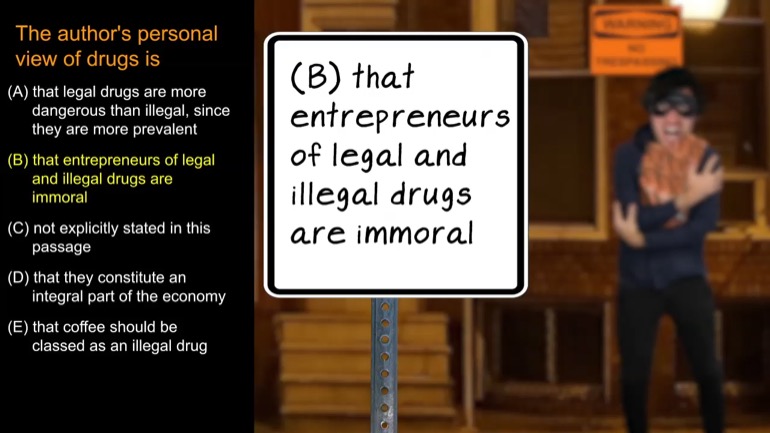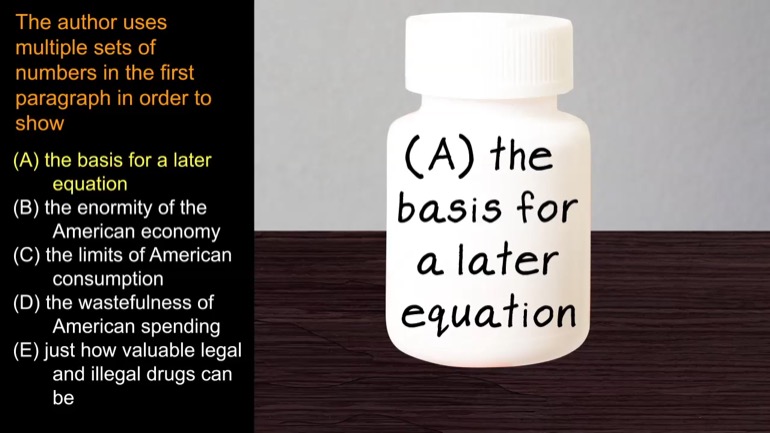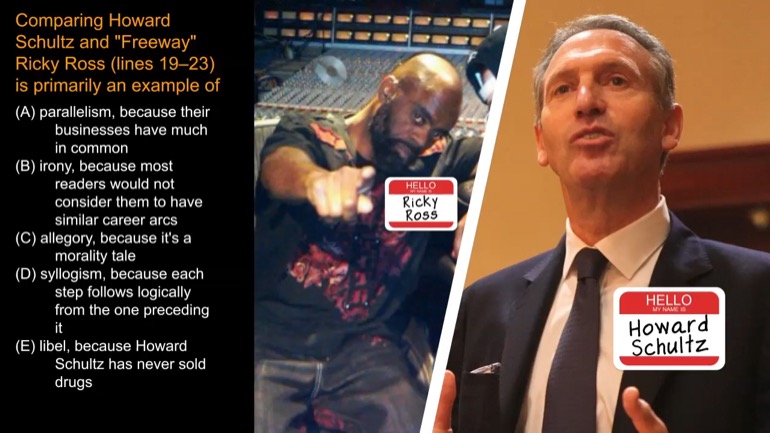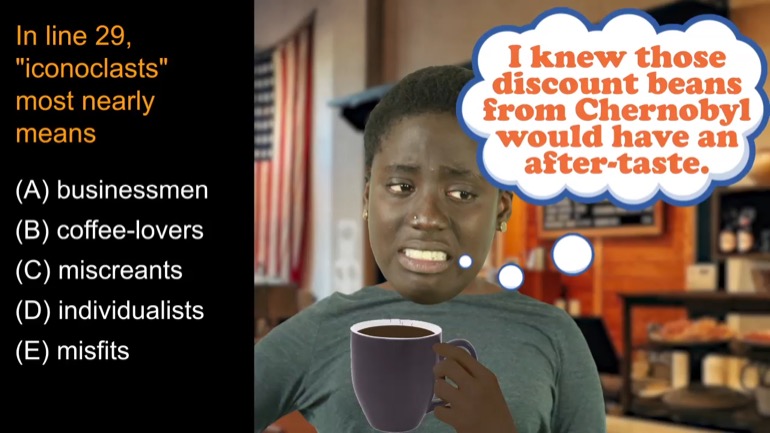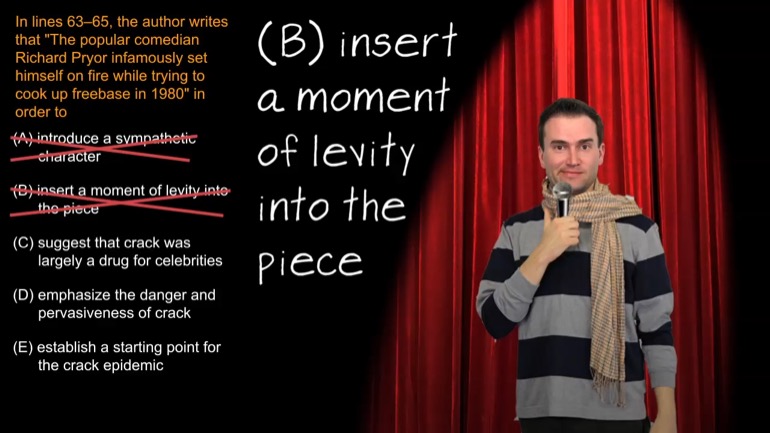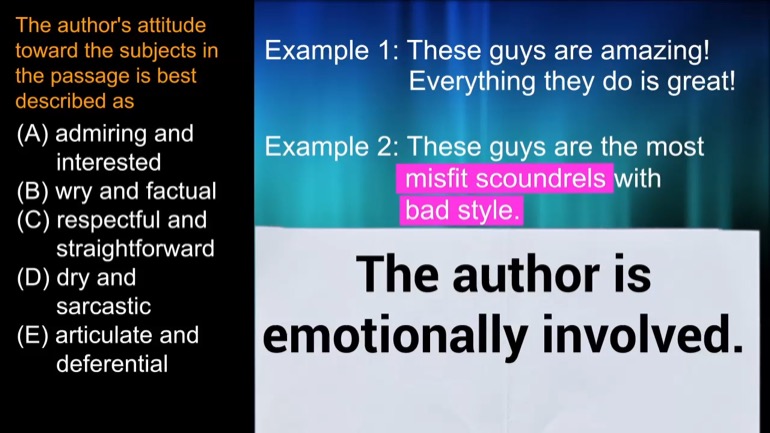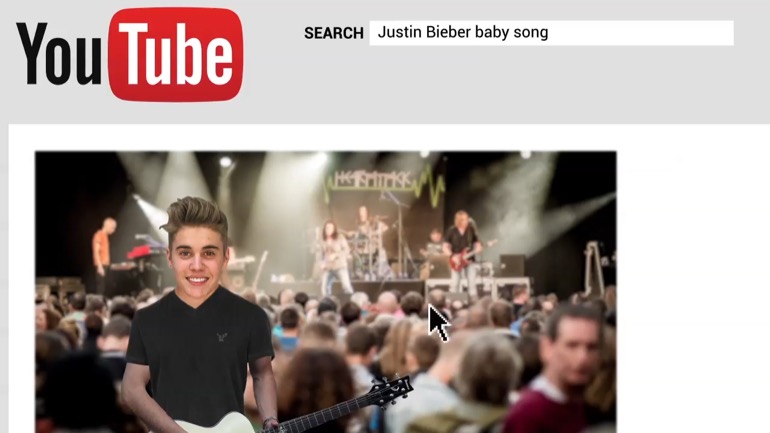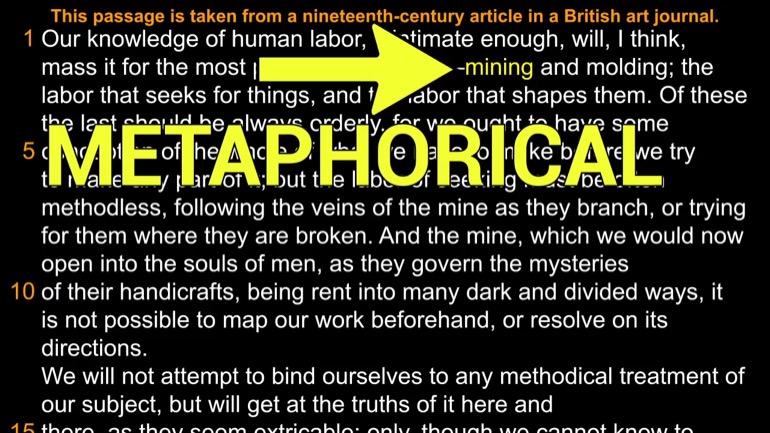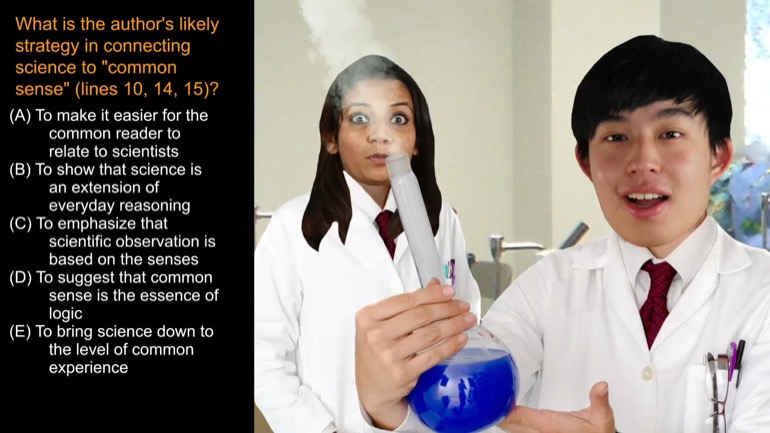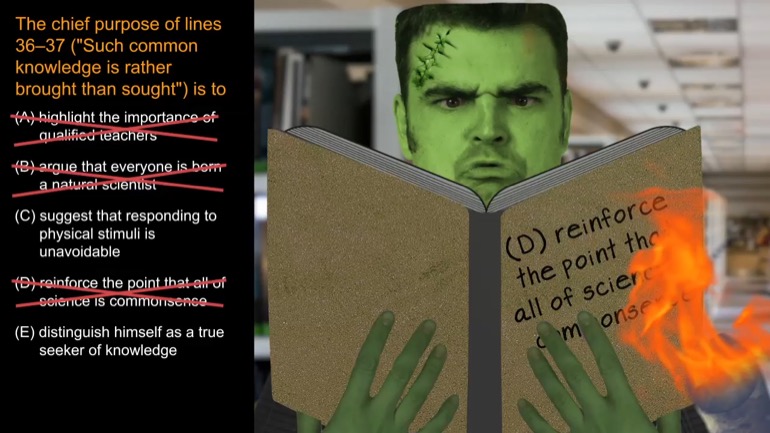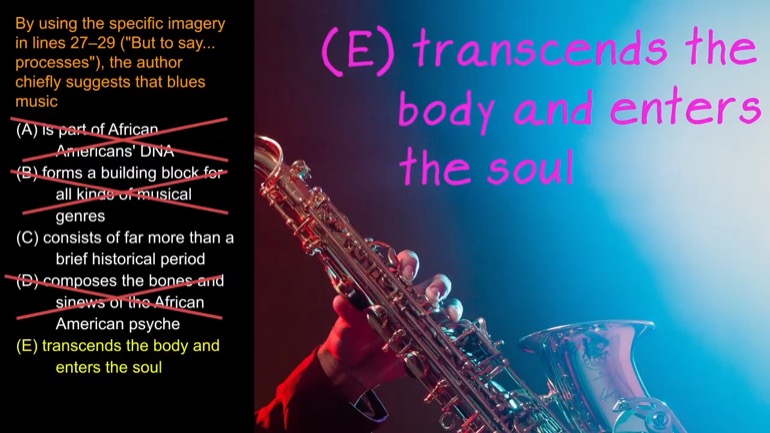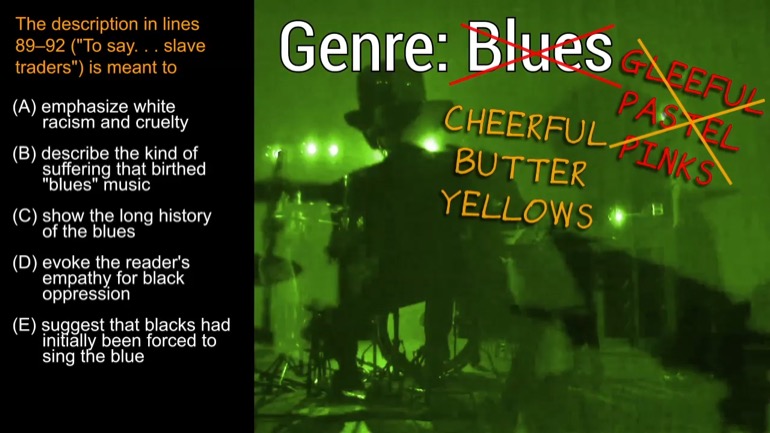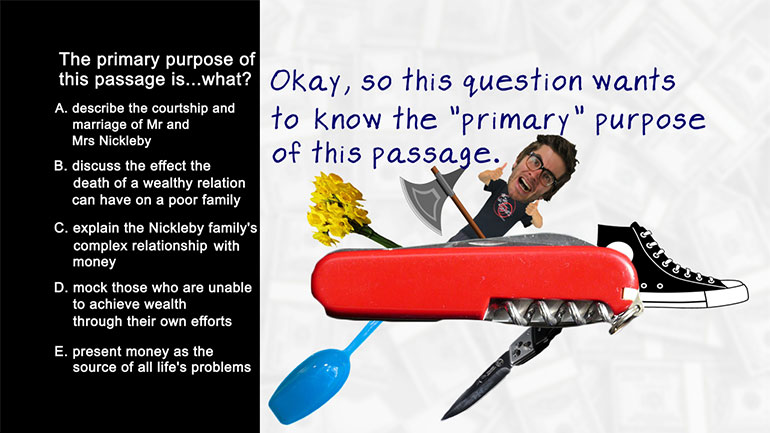ShmoopTube
Where Monty Python meets your 10th grade teacher.
Search Thousands of Shmoop Videos
Passage Drill Videos 153 videos
AP English Language and Composition: Passage Drill Drill 1, Problem 7. What is the principal rhetorical function of paragraphs one to three?
AP English Language and Composition: Passage Drill 1, Problem 8. The quotation marks in the third paragraph chiefly serve to what?
In this AP Language and Composition drill question, read the provided passage and infer information based upon footnote two. AP Language and Com...
AP English Language and Composition 5.4 Passage Drill 182 Views
Share It!
Description:
AP English Language and Composition 5.4 Passage Drill. The first paragraph implies that "the particular sciences" what?
Transcript
- 00:00
[ musical flourish ]
- 00:03
And here's your Shmoop du jour, brought to you by particular sciences.
- 00:07
Because science as a whole couldn't get its act together.
- 00:10
All right, check out the following passage.
- 00:12
[ mumbles ]
Full Transcript
- 00:17
All right, we're mumbling. We're reading, but we're mumbling.
- 00:19
[ mumbles ]
- 00:30
[ mumbling continues ] All right, that's how we read here at Shmoop.
- 00:36
It's also how we brush our teeth.
- 00:37
We just hold the toothbrush there and mumble.
- 00:41
Okay, well, the first paragraph implies that the particular sciences... what?
- 00:45
And here are the potential answers.
- 00:47
[ mumbles ]
- 00:52
All right, we done reading the options here?
- 00:54
Okay, so this one's pretty easy if we take another look
- 00:56
at the sentence in which the phrase "particular sciences" appears.
- 01:00
This one. Right here. You lookin'?
- 01:02
Come on. All right.
- 01:03
The speaker's pointing out that ideas of good and evil aren't
- 01:06
even considered in most scientific thought,
- 01:08
but that philosophy is still caught up in morality.
- 01:11
We'll start by nixing option A.
- 01:13
The speaker's whole point is that being too concerned about ethics
- 01:16
is keeping philosophers from making any progress.
- 01:18
He wants philosophers to be more like scientists, not
- 01:21
less like them.
- 01:22
Does that mean they get to wear those cool lab jackets, too?
- 01:25
[ mumbles ]
- 01:28
All right, B and C are both wrong because they say that ethics
- 01:31
are a part of scientific thought.
- 01:33
Well, as we just said, the speaker thinks it's cool that science
- 01:35
is ethics-free.
- 01:37
He likes his science non-organic, genitally mutated, and
- 01:40
raised in cages. [ crash ]
- 01:43
[ burp ]
- 01:44
Option E is saying the opposite of what the speaker is arguing.
- 01:47
According to the speaker, ethics tie us in with fallacies
- 01:50
or delusions of human nature.
- 01:52
So the particular sciences have to be more removed, not less removed.
- 01:56
Right? Right.
- 01:58
Option D is the only one that gets the point.
- 02:01
Philosophy is the last refuge
- 02:03
where examinations of good and evil can still exist
- 02:06
because the other sciences have given them the boot.
- 02:09
Aww. We kind of feel bad for good and evil.
- 02:12
If the speaker has his way, well, they'll have no refuge at all.
- 02:16
Maybe we should set up a sanctuary for ethics. How 'bout that?
- 02:19
[ harp ]
Related Videos
AP English Language and Composition: Passage Drill Drill 1, Problem 2. What is the speaker's primary purpose in using onomatopoeia in line four?
AP English Literature and Composition 1.1 Passage Drill 7. The primary purpose of this passage is what?
Wishing upon a star may help you pass your AP English Language and Composition test, but answering this question would be a safer bet.
Take a look at this shmoopy question and see if you can figure out which device the speaker employs the most.
Feel like shifting gears and answering a question about shifting tones? We've got you covered. Take a look at this question and see if you can foll...
